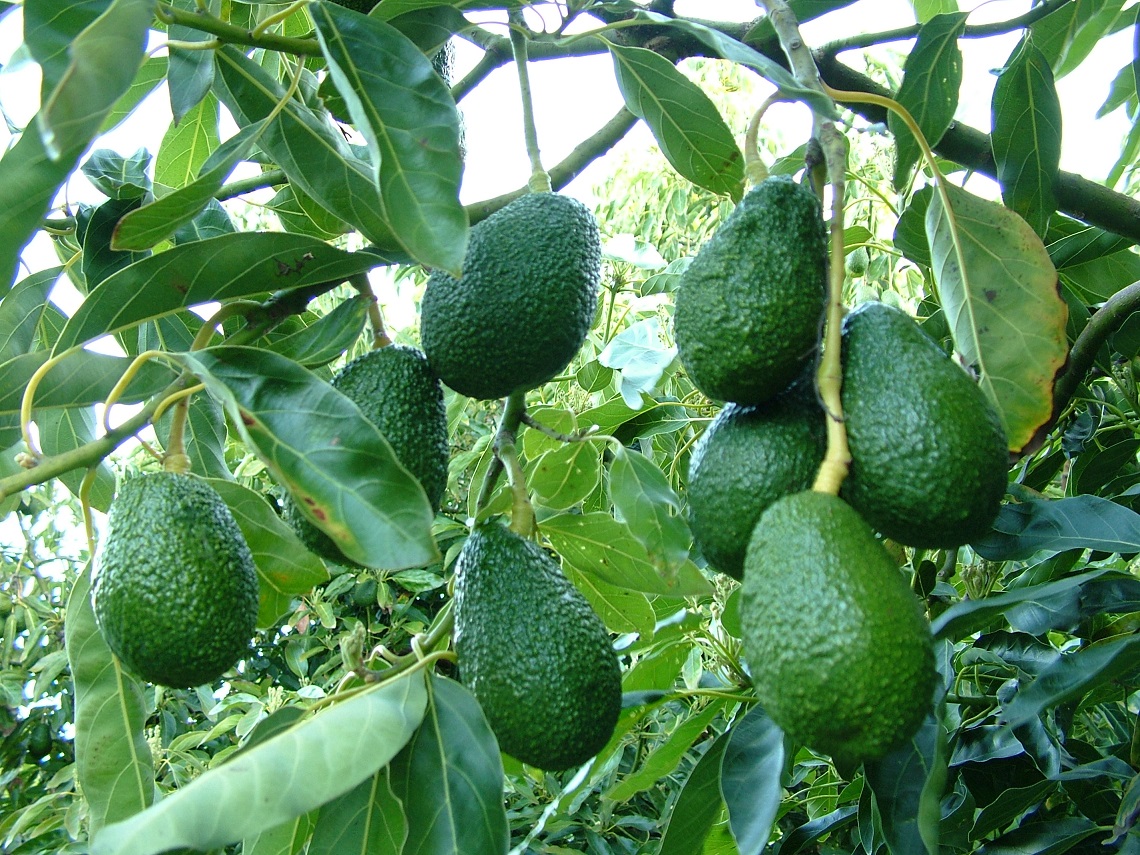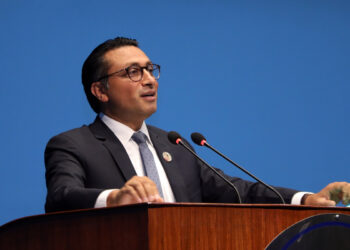ITAHARI: Dhankuta district was famous for exporting toothsome orange creating its niche market among consumers in the eastern Terai and also in adjoining Indian markets of Bihar and West Bengal.
Once a synonym of orange production in the eastern hills of Nepal, Dhankuta, of late, is turning to a brand new exotic fruit – avocado.
Brought in the district by researchers and visitors of Europe in the UK-funded Pakhribas Agriculture Research Centre some three decades ago, the nutrition-rich fruit, believed to have originated in Mexico, is being rapidly promoted in Dhankuta by local governments since two and half years. Dhankuta Municipality has taken a lead in this entrepreneurial endeavor of agroforestry.
Why Dhankuta switched from orange to avocado? The mayor of Dhankuta Municipality Chintan Tamang has an easy answer. ”Due to several reasons like climate change and the likes, our orange production in the district depleted and we sought experts’ advice to replace the possible loss,” said Tamang, who has officially hired an agricultural expert. ”Avocado and dragon fruit were recommended as the most suitable fruits to our soils and temperature.”
From Asia’s first avocado festival to a declaration of ‘avocado capital’.
After repeated soil tests and experts’ recommendations, Dhankuta Municipality decided to invest more in its production from the very beginning.
For this, the municipality encouraged locals to plant avocado saplings. In order to help farmers with basic knowhow of avocado, municipality published a book, authored by an agriculture expert Jiwan Rai, detailing commercial avocado farming.
In the early stage, Municipality imported 4,000 avocado saplings and distributed to local farmers.
Later on, Municipality established its own avocado nursery and started distributing avocado seedlings. ”We have distributed around 25,000 avocado saplings to 500 farmers of all 10 wards of our municipality,” informed Bikash Adhikari, the Economic Development Section Officer of the municipality.
Soon after distributing thousands of avocado saplings, the third Municipal Assembly of the Dhankuta Municipality brought new avocado-friendly plans and policies. The Municipal Assembly unanimously declared Dhankuata as the ‘Avocado Capital’ on 22 June 2018.
On 24 November 2018, Dhankuta hosted an avocado festival which it claims as to the ‘first’ avocado festival in the whole of Asia. The first-ever avocado festival brought in 50 avocado farmers showcasing their 30 species of avocado produced in the district. ”In the upcoming year, we are preparing to host a national-level avocado festival,” said Mayor ChintanTamang.
Dhankuta’s commercial promotion of avocado was not limited to its ‘first’ avocado festival in Asia and declaring itself as an avocado ‘capital’ of Nepal. Municipality constructed a public park at Parichaya Mode of Dhankuta-6, in the name of this high-yield fruit.
Mayor’s Agro Tourism Programme, a flagship agricultural program of the municipality spanned in an area of 11 square kilometers, has devised additional plans to attract farmers towards avocado. This multi-year program aims to distribute 60 thousand avocado saplings within three years.
Farmers are elated with good income; municipality to run a factory
An avocado sapling starts producing fruits after three years. A kilogram of avocado fetches a minimum of Rs 30. The cost reaches a peak of 150 per kilogram at retail stores of nearby urban centers of Dharan, Itahari, and Biratnagar. According to a study carried out by the municipality, a tree of avocado can produce a minimum of around 21 kilograms.
Previous popular among foreign nationals, avocado, these days, is creating new native consumers every day. An avid avocado consumer Yasodha Sene of Itahari is one of them. ”I was ignorant of the nutritious value of avocado. My relatives residing in the UK told me about it,” said Sene. A new batch of conscious avocado consumers like Sene has spiked avocado demand domestically.
Local farmers are buoyed by the commercial success of their farming. Rajkumar Tamang, a returnee from foreign employment, fetched Rs 300 thousand from a single tree. An inhabitant of Dhankuta-4, Tamang said he abandoned foreign employment owing to good income from avocado.
Not all farmers are as lucky as Tamang. However, they are optimistic about their increased income. Kabiraj Ghimire, a local, said avocado has better income than traditionally grown orange. ”We are not bereft of the market and unlike other traditional farming and animal husbandry, it is not time-consuming,” said Ghimire.
According to an estimate by the municipality, avocado farming has increased the internal income of the locals. ”Before declaring avocado capital and aggressively distributing saplings, we would generate Rs 2 million 332 thousand 500,” said Bikash Adhikari, the Economic Development Section Officer who oversees the avocado trading statistics in the municipality.
”Now, after the declaration, we have projected to make an inspiring income of Rs 42 million 600 thousand in this fiscal year.”
Adhikari, also an avocado farmer himself, said that 13,358 avocado trees are giving fruits, 14,000 are being matured to give fruits and 104,500 saplings are planted recently throughout the municipality. ”We are in a stage to produce 200,000 plus kilograms of avocado annually and the production is expected to grow by 3 percent per year.”
Owing to increasing production of avocado in the district, Dhankuta Municipality is afoot to establish a factory for avocado products. The Municipality is gearing up to produce cosmetic items, juice, alcohol and lots more profitable products with avocado as raw material.
”We are preparing an area of 50 ropanis of land for a future factory of avocado,” said Mayor Chintan Tamang. He added, ”We have made a proper Detailed Project Report (DPR) attract private firms for commercial operation for long.”









Comment